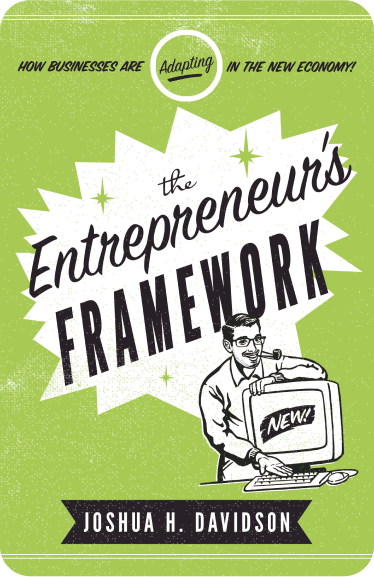Cash App scams have become a huge issue since the start of the pandemic. In fact, a consumer watchdog group is starting to get involved.
Here are some of the most prevalent scams to look out for, as well as how these problems might be solved.
The Rise Of Cash Transfer Apps
Apps like Venmo, Cash App, and Zelle exploded at the height of the pandemic when people were reluctant to use ATMs.
For example, Zelle hit 1.8 billion transactions in 2021. This was double the amount they had two years prior.
Currently, Cash App is used by tens of millions of people every month.
However, malicious actors have decided to take advantage of this with a wide range of scams. As of now, there is no legal protection for victims.
The law states that the banks which own these apps are only responsible for transactions that are not authorized by users. This means that if someone is tricked into making a transaction on behalf of a malevolent actor, they are on their own.
If you have never experienced a scam like this, you may be wondering how it is possible to trick someone into emptying their account.
Let’s take a look at some of the most common tactics.
Abusing Cash App Friday
Cash App does a genuine weekly cash giveaway on their Instagram and Twitter accounts. While this in itself is real, scammers have found ways to take advantage of it.
They will contact giveaway participants pretending to be Cash App. Then they demand a fee in exchange for the prize money. This is known as the Cash App Friday or $Cashtag scam.
This often also is a part of what is known as cashflipping scams. Scammers will claim that if you send them an amount of money. They will send you more back. Here is an example of this found on Twitter.
Careful of Scams folks. Found this screenshot floating around on how people are scamming#CashAppFriday pic.twitter.com/WZdBJNXLNi
— Shadow (@Chipmunk686) March 27, 2020
One of the Most Malicious Cash App Scams: Fake Site Support
Often people have little sympathy for the victims of such scams. They even make fun of them or assume they were just “being stupid” so they deserve it.
While some scam tactics are not very sophisticated, they have become increasingly sophisticated and aggressive. Scammers have started to set up fake support accounts on social media to get login information for users.
This other tactic is quite sophisticated but less well known. Scammers will actually use SEO poisoning to get fake support websites at the top of search results.
According to Techtarget, this is way more common than you might think.
SEO poisoning, also known as search poisoning, is an attack method in which cybercriminals create malicious websites and use search engine optimization tactics to make them show up prominently in search results.
The sites are associated with terms that large numbers of people are likely to be using in searches at any given time, such as phrases related to holidays, news items and viral videos.
According to Websense Security Labs, up to a quarter of the first page of search results for trending topics are linked to malicious websites.
Essentially, app users google looking for site support, and a fake website that looks legitimate pops up in the search.
They click through, the scam support site asks for their log-in info, and once they give it the scammers clear out their accounts.
Classic Phishing with a Cash App Scam Twist
At this point, phone and email scams go back decades. These days, they also arrive as text messages and emails through and from a variety of apps.
There are countless scams like this out there. Some companies have even stopped using email entirely for internal communications because these scams are so prevalent.
Sometimes, scammers will mimic a real person or business, claim that you have won something if you click a link, and then abuse your accounts or personal information.
Sometimes they claim that you have been locked out of your account, or there has been an attempt to hack you, and you need to create new passwords or re-link your email to your account. Of course, this information goes straight to them so they can hijack your account.
Here is an example of this type of scam.
https://twitter.com/nnnnnorthhhhh/status/1351290556563943429?ref_src=twsrc%5Etfw%7Ctwcamp%5Etweetembed%7Ctwterm%5E1351290556563943429%7Ctwgr%5E%7Ctwcon%5Es1_&ref_url=https%3A%2F%2Fwww.welivesecurity.com%2F2022%2F07%2F27%2Fcash-app-fraud-scams-watch-out%2F
What Can Be Done to Solve the Problem?
According to the Wall Street Journal The financial watchdog Consumer Financial Protection Bureau (CFPB) wants this to change.
Under new guidance the bureau is preparing to release in the coming weeks, banks could face heightened requirements around certain scams that have become more prevalent on these platforms, these people said, such as when a customer is tricked into sending money to a scammer pretending to be a representative of his or her bank.
As of now, banks have zero responsibility to consumers.
Cash App Fraud Negatively Impacts Users and Institutions
However, this fraud is a massive issue for everyone involved. For example, in the first quarter of 2018 alone, Venmo lost more than $40 million to payment fraud.
Keep in mind that this was before the boom of users and scammers brought on by the pandemic.
The CFPB continued:
The coming guidance hasn’t been completed and could change. It appears aimed primarily at a spate of complaints related to Zelle but would likely apply to any other payments service that connects directly to a consumer’s bank account, such as Venmo.
The thinking here is that if banks are made responsible for reimbursing users who have been scammed, they will put effort into making their platforms safer, to avoid having to pay.
According to Sam Gilford, a spokesman for the consumer bureau:
“Reports and consumer complaints of payments scams have risen sharply, and financial fraud can be devastating for victims. The CFPB is working to prevent further harm, including by ensuring that financial institutions are living up to their investigation and error-resolution obligations.”
Final Thoughts on the Rise of Cash App Scams
The CFPB is taking steps to protect consumers from cash app scams.
However, it’s important for consumers to be aware of the types of scams that are out there and take precautions to protect themselves.
What do you think about the situation? Comment below.
Since 2009, we have helped create 350+ next-generation apps for startups, Fortune 500s, growing businesses, and non-profits from around the globe. Think Partner, Not Agency.
Find us on social at #MakeItApp’n®

















